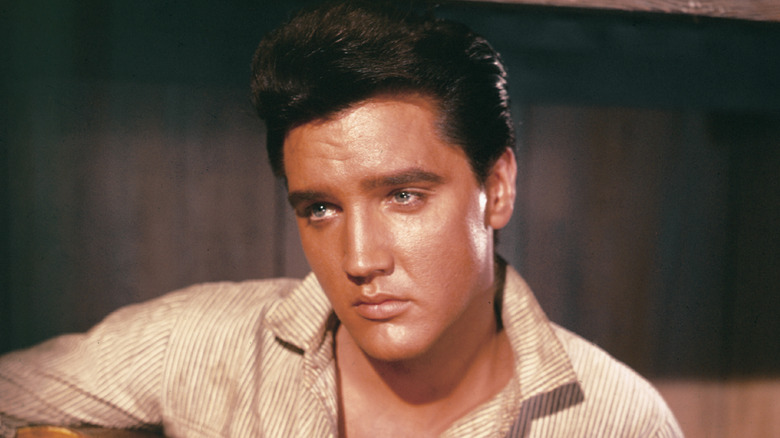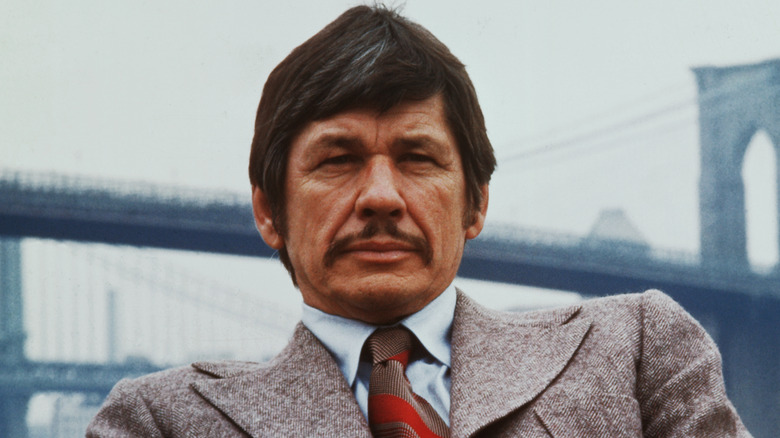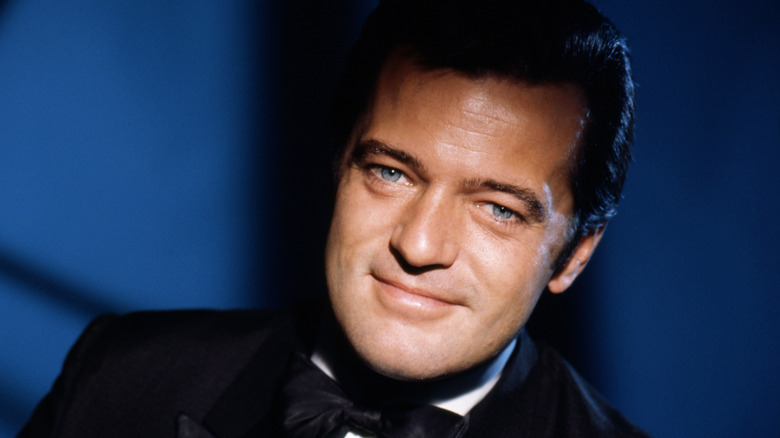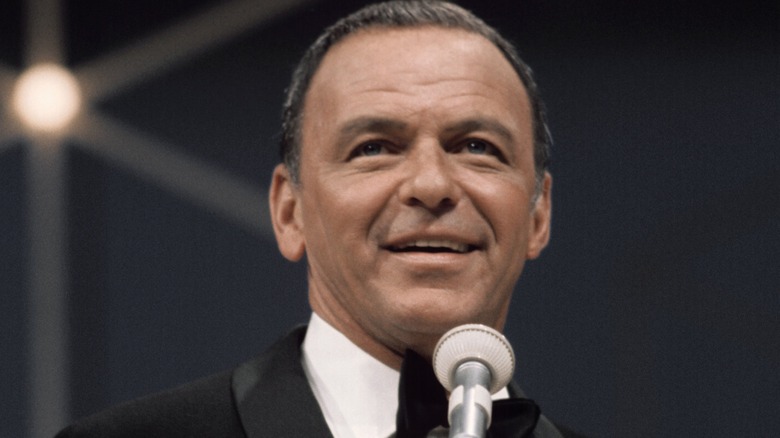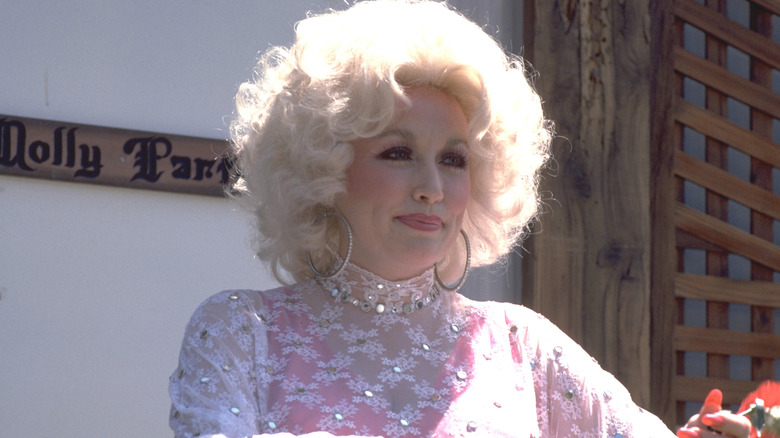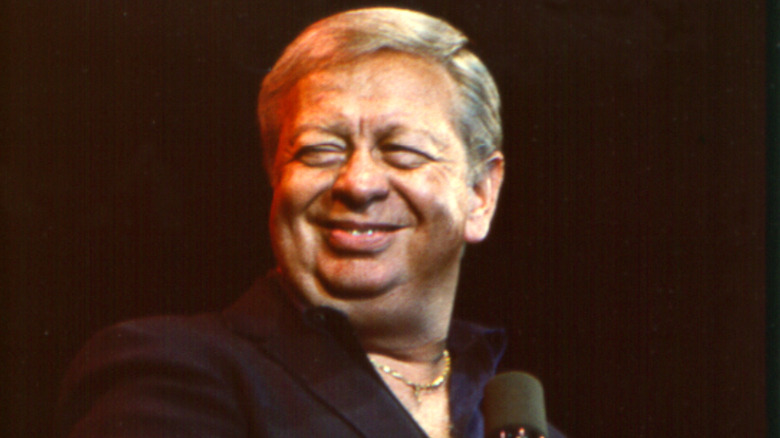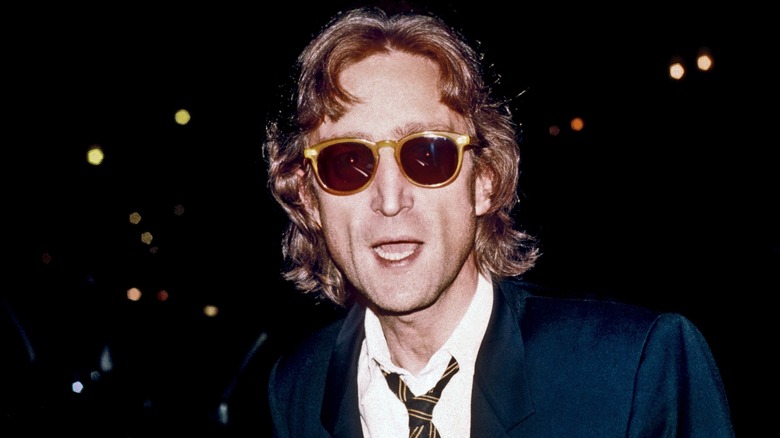Stars That Elvis Couldn't Stand
The mid-20th century was filled with all types of rockers, crooners, rockabilly artists, and more, but of them all, only one was known as the "King of Rock and Roll:" Elvis Presley. Presley rose from humble beginnings in Tupelo, Mississippi, to become the most famous rock and roll artist of his generation. He went on to become a pop culture icon, an actor, and more. Presley helped define a generation of music, and he's beloved for his work, artistry, and global influence.
Presley seemed to get along with others in his profession, but like any celebrity, there were some disagreements. It's unfortunate that famous folk don't always get along, which can be attributed to everything from jealousy to an utter dislike of another celeb's personality or work. Whether Presley wanted to work with someone or avoid them entirely, the King wasn't immune to rubbing people the wrong way. While some didn't like Presley, there were several the King couldn't stand.
Fortunately, the list of celebrities whom Presley didn't like isn't long. That said, it's filled with some of the most talented professionals in their chosen field, from acting to singing and songwriting. It seems that when the King felt he needed to distance himself from a celebrity, he chose some of the biggest names in entertainment. Each of these celebrities ran afoul of the King at one time during his career, and as a result, he wasn't particularly inclined to sit down and share a meal with any of them.
The King didn't take to Charles Bronson
Charles Bronson was one of the best action stars of his generation, having dominated the genre with "The Magnificent Seven," "The Great Escape," and "The Dirty Dozen." His work effectively established the modern action genre, solidifying Bronson as a key player in the industry. While he did excellent work in his chosen field, one thing he seemed to have done really well was get on Elvis Presley's bad side because the singer disparaged Bronson whenever he got a chance.
The two worked together on "Kid Galahad" in 1962, and the two didn't spend much time together unless they had to. Presley's bodyguard, Sonny West, said in his book "Elvis: What Happened?", "Elvis just didn't go for him. He was a very quiet kind of guy, a loner, and he just didn't think Elvis was that big a deal. Elvis hated this, and he was always putting him down. He used to call him a musclebound smart Alec and a musclebound ape" (via Far Out). Essentially, any chance the King got to put Bronson down, he took it.
It's unfortunate that the two didn't get along because they had a military background in common. That said, Presley didn't serve during wartime (he was drafted during peacetime and served in Germany), while Bronson was a legitimate war hero who served during World War II. Regardless, they couldn't find a common ground, and the two co-stars simply didn't get along. According to Presley's bodyguards, the King's problem with Bronson wasn't reciprocal, and there is no record of Bronson publicly disparaging Presley.
Elvis couldn't stand Robert Goulet
According to Elvis Presley's bodyguards, the King wasn't a fan of many living performers — well, few that were alive. Presley had his own style and way of doing things, and he didn't much appreciate the offerings of others in his line of work. One such celebrity to be on the receiving end of Presley's dislike of their work was singer Robert Goulet. While Goulet was on his television, Presley took out a gun and blasted a hole into his 25-inch RCA television, which is on display across the street from Graceland, Presley's home-turned-museum.
Presley had a propensity for shooting his televisions, and he had the money to burn, so he wasn't without replacements. Goulet later commented on the shooting in a 2004 interview, where he stated Elvis and he were friends. About the shooting, Goulet said, "He also shot 50 other people. They told me that he had about a hundred sets in the basement. And he'd shoot the damn thing out ... I knew he was not himself, so therefore, it wasn't anything to do with me" (via Elvis Information Network).
There are several reasons why Presley shot his television every time Goulet appeared, as some have claimed. He may not have liked Goulet's singing style, or he could have disliked the way he sang without feeling. Another possibility is that Presley was jealous of Goulet, having worked with his girlfriend, Anita Wood, on "Camelot." Evidently, Goulet wrote a postscript on a letter to Presley from Wood, and he didn't much appreciate it.
The King had beef with Frank Sinatra
Of all the people Elvis had beef with, Frank Sinatra was probably the one he had the most in common with. Like Elvis, Sinatra was a beloved singer and actor, and while their singing styles didn't often align, it's fair to say that they competed for listeners. Despite this, they did work together, singing a medley of their respective hits: "Witchcraft" and "Love Me Tender," swapping lyrics between the original artists, and it was nothing short of spectacular.
Unfortunately, it may have been the only time the two rivals were close to one another. The duet aired in 1960; when Presley appeared in the special, he was paid $125,000, which was more than Sinatra, and "The Voice" may not have appreciated that. From Presley's side of things, he likely didn't appreciate that Sinatra often spoke out against Presley's preferred genre of music: rock 'n' roll.
Sinatra once told the Associated Press his views of the genre, stating that "It fosters almost totally negative and destructive reactions in young people. It smells phony and false. It is sung, played, and written for the most part by cretinous goons, and by means of its almost imbecilic reiterations" (via Far Out). After hearing Sinatra's words, Elvis said, "If I remember correctly, he was also part of a trend. I don't see how he can call the youth of today immoral and delinquent." The two traded barbs associated with their respective genres for quite some time, but in the end, Elvis solidified his place as the predominant male artist of the day.
Elvis came close to singing this hit song — but was turned down by Dolly Parton
If Elvis Presley is the King of Rock and Roll, Dolly Parton is the Queen of country music. Parton has been recording hit after hit for decades, and she started really taking off around the same time Presley began making his comeback in the late 1960s. Parton's musical talent and songwriting skills are undeniable, and it was the latter that drove a wedge between her and Presley as he wanted to cover Parton's hit single "I Will Always Love You."
Parton revealed in a 2006 interview with CMT that, "I got the word that he was going to record it, and I was so excited. I told everybody I knew, 'Elvis is going to record my song. You're not going to believe who's recording my song.'" With that admission, it seems that Parton was incredibly excited to hand over her 1974 hit to the King, but as you likely know, Presley never recorded a cover of "I Will Always Love You." Parton later explained during an interview with BBC Radio 2 why she didn't authorize the recording:
"I wouldn't let Colonel Tom Parker [record "I Will Always Love You"]." She explained that Elvis loved the song and crafted his own take on it. The main reason was that Parton wasn't willing to give Tom Parker publishing rights, explaining, "This is the most important copyright in my whole publishing company, and I can't do that." While it's not clear that Presley didn't like Parton over her decision, it's possible held a grudge against her, even if it wasn't personal.
The King was no fan of Mel Tormé
While Elvis Presley wasn't a huge fan of some of his contemporary singers and songwriters, Presley disliked a certain style of music so much that he also disliked the artists associated with it. Priscilla Presley explained that Elvis could instantly spot talent; he could also do the opposite. Priscilla wrote in her memoir, "Elvis and Me," that "He couldn't abide singers who were, in his words, 'all technique and no emotional feeling.'" This is why he didn't like Robert Goulet, and it's also why he didn't like Mel Tormé.
Priscilla further explained that Elvis "firmly placed Mel Tormé and Robert Goulet" in this category. Both men were responsible for the deaths of two television sets. Elvis fired his .357 Magnum into the sets, destroying them whenever either artist appeared. Priscilla noted that Elvis' dislike of Tormé wasn't personal — Elvis was simply passionate about music, and she believed that he had a great eye for spotting talent, so when he didn't see it, he reacted violently ... toward his televisions.
While Elvis' feelings toward Tormé weren't personal, it seems Tormé had his own issues with the King. He once told The Arizona Republic, "I was shocked to hear that a man of integrity like Hal Wallis [Film producer responsible for many of Elvis' movies] had referred to Presley as a great dramatic actor. It just shows how far a man will go for the almighty dollar" (via Elvis History Blog). It's unknown if Elvis knew of this quote, but it would explain his fiery response to seeing Tormé on his TV.
Elvis hated John Lennon for several reasons
If there were ever two singers-songwriters who occupied the same space in terms of fame, it would be Elvis Presley and John Lennon. The Beatles frontman was one of the most famous entertainers of the 20th century, and you can see Presley's influence on The Beatles early in their career. Lennon was a fan of the King when he was a teenager, and he emulated much of his success, but the feeling wasn't mutual, as Presley didn't like Lennon at all. They first met when Beatlemania was sweeping the world, so Lennon was at the height of his popularity.
According to reporter Chris Hutchins, who knew both men well, Presley didn't like Lennon from the moment they met when he came to Graceland in 1965. The reason for Presley's dislike of Lennon was his pacifism, as Hutchins explained to the Daily Mail in 2011, "His dislike of the pacifist Beatle was born from the night I took the Fab Four to his house for their first — and last — meeting. John had annoyed Presley by making his anti-war feelings known the moment he stepped into the massive lounge" (via Express).
Lennon's outspoken criticism of President Lyndon B. Johnson stemmed from his part in the Vietnam War, and he wasn't quiet about that. This wasn't simply a moment of distaste — Presley got close to FBI director J. Edgar Hoover in the hopes of getting President Nixon to toss Lennon out of the United States. This didn't fall through, and Lennon wasn't booted from the States, but it displays the extent of Presley's animosity toward Lennon.

